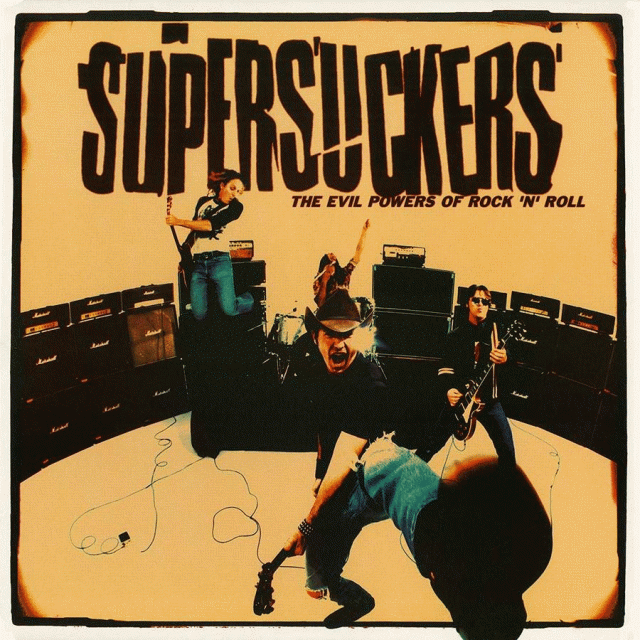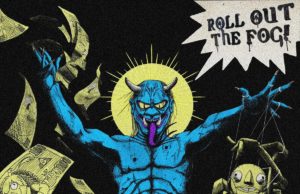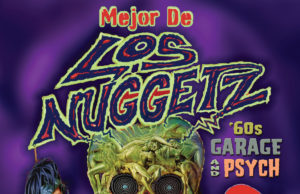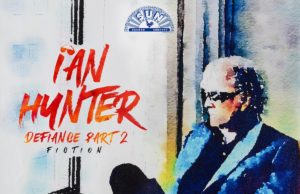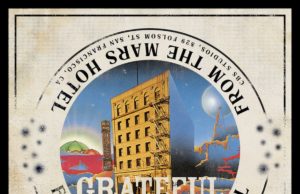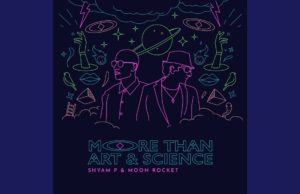Two decades ago, new albums from Supersuckers, Lil Wayne, Sisqo and others were spinning away in my portable CD player. Here’s what I had to say about them back then (with some minor editing):
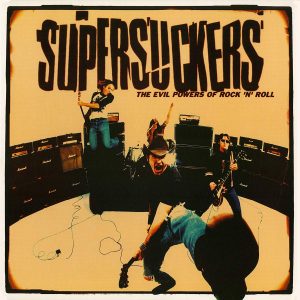 The Supersuckers
The Supersuckers
The Evil Powers of Rock ’n’ Roll
“Would you say that your songs are about liquor, women, drugs and killing for the most part?” “Yep.”
That snippet of between-song patter — apparently a clip from an interview — encapsulates everything I love about rawk blockheads The Supersuckers. First and foremost, of course, you’ve gotta applaud anybody in today’s bubble-pop world who still worships at the unholy altar of sex, drugs and rock ’n’ roll. But what I really admire about the ’Suckers is that they do it with their heads held high. Like the last followers of some ancient cult, these boys stubbornly cling to the belief that deep down, rock really is the devil’s music: Loud, fast, crude, sexy and sinful enough to send you to hell — at least, if you’re doing it right.
On their blistering disc The Evil Powers of Rock ’n’ Roll, they’re doing it right. Make that doing it right again. The latter half of the ’90s was not prime time for the band — one member left for a while, they reportedly lost control of their enthusiastic drug habits (I once saw them hector a bar crowd for dope between songs), and record business hoo-hah left them with an album that was never released. But what didn’t kill them has made them stronger; Evil Powers is a return to form for singer/bassist Eddie Spaghetti, drummer Dan (Dancing Eagle) Siegel and guitarists Ron Heath and Dan (Thunder) Bolton, whose last rock album as a unit was ’94’s awesome La Mano Cornuda (one of my top 10 albums that year).
Cornuda is a tough mark to beat, but Evil Powers gives it a helluva shot. Blasting out of the blocks with the opening title cut’s churning, four-on-the-floor guitar and bad boy lyrics (“Got evil blood and a twisted mind / Everywhere I go … trouble won’t be far behind”), the ’Suckers make up for lost time with a 35-minute, pedal-to-the-metal celebration of rawk in all its pistol-packing, amps-on-11, feedback-drenched, wah-wah stomping glory. Cool Manchu borrows its vibe from classic AC/DC, Fisticuffs is a bare-knuckle ode to back alley brawling, and My Kickass Life is their best rock ’n’ roll song about rock ’n’ roll since Gold Top, their love letter to their guitars.
This time around, however, Eddie also pens a few love letters to living beings. Rootsier, loping tracks such as Santa Rita High, Goin’ Back to Tucson, Stuff ’n’ Nonsense and Dirt Roads, Dead Ends and Dust all deal with lost years, missed boats and last chances that never panned out. But fear not; Eddie’s nostalgic reveries only last until the guitar solo. And even on the wimpiest tune, the band still live by that golden rule of rock (and other nefarious activities, judging by the lyrics to the track I Want The Drugs): “If some is good then more is great.” That’s so wrong it’s gotta be right.
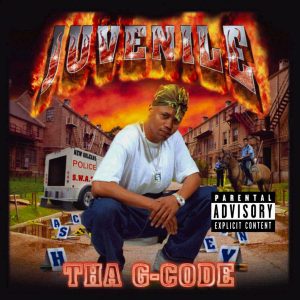
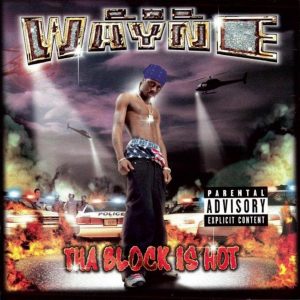 Lil Wayne
Lil Wayne
Tha Block is Hot
Juvenile
Tha G-Code
Bubblegum pop isn’t the only musical scene where the younguns are taking over, it appears. More and more, rap is becoming a kids’ game. Witness these recent releases from New Orleans homeboys Juvenile and Lil Wayne. Although only 17 — at least according to his bio — Wayne already seems the Big Easy’s answer to Snoop Dogg. Breezing his way through his debut disc with a blunted, nasal delivery and a lazy, hazy flow, Wayne’s laid-back stance complements his music’s eccentric energy, produced through cheesy keyboards, snappy snare beats and goofball samples (The Block is Hot is likely the closest Craig Kilborn will ever get to making a rap record). Juvenile, meanwhile, may no longer be a young master — supposedly, he’s 23 — but he is a pretender to Master P’s throne, right down to his salty bark and the soldier references he drops all over the patented Cash Money blaxploitation-soul of his third disc. Imitation may be the sincerest form of flattery, but Juvenile needs a bit more schooling.
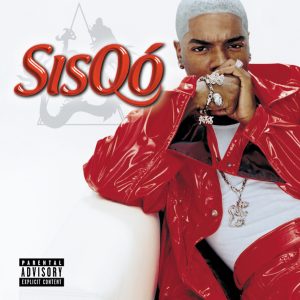 Sisqó
Sisqó
Unleash the Dragon
If you saw Will Smith’s Wild Wild West video, you might remember Dru Hill vocalist Sisqó as the guy whose hair resembles a skullcap of peroxide blond Astroturf. Well, his head may be indoor/outdoor, but his voice is strictly from the bedroom on this debut solo album. With a smooth croon dripping with soul and ripe with sensuality, Sisqó moans, groans, swoops, slides, glides, pleads, seduces and double entendres — just what do you think Unleash the Dragon means, anyway? — his way through a baker’s dozen slinky boudoir-soul vibes and incense-scented R&B sexcursions (including the hit Thong Song and another that shamelessly rips off, of all things, Livin’ la Vida Loca). Call him The Artist Most Likely to Inflict Rugburn.
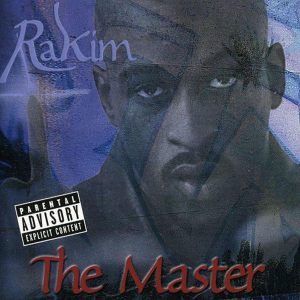 Rakim
Rakim
The Master
According to his press bio, old-school rap legend Rakim is still coming up on 30 — which would mean he dropped his first hit, 1987’s classic Eric B. for President, at the ripe old age of 17. Obviously he was wise beyond his years — a quality he continues to display on the blast-from-the-past comeback The Master. Flow was what Rakim brought to the game, and it’s still his trademark. These smooth, effortless rhymes are delivered in his monotone baritone with all the deadpan precision of a Vegas dealer. And fittingly, he always wins. Sure, there are plenty of faster, louder, flashier gunslingers out there. But Rakim still has enough skill and firepower to make The Master deservedly titled.
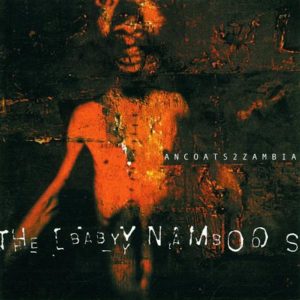 The Baby Namboos
The Baby Namboos
Ancoats 2 Zambia
Someday very soon, I suspect, every member of trip-hop guru Tricky’s family will have his or her own CD. The former Massive Attacker (a nephew of ex-Elton John guitarist Caleb Quaye) started the familial ball rolling by christening his first album Maxinquaye after his mother. Then came uncle Finley Quaye with 1997’s Massive A Strike. Now it’s cousin Mark Porter’s turn; his foursome Baby Namboos are signed to Tricky’s Durban Poison imprint. The dark, freaky and impressive Ancoats 2 Zambia refutes any charges of musical nepotism, however; its dozen tracks are firmly rooted in bass-heavy Bristol trip-hop, swimming in rubbery, dubby riddims and haunted by the same tense sense of paranoia and spooky, whispered vocals made famous by Porter’s cuz (who, for those keeping score, turns up on three cuts). Guess it just runs in the family.
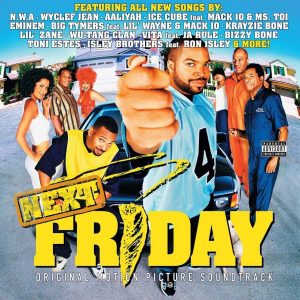 Next Friday
Next Friday
Various Artists
It looks like just another soundtrack to just another dumbass movie sequel, but believe it or not, the Next Friday CD marks a historic moment in hip-hop: The long-awaited reunion of original gangsta rappers N.W.A. Or at least most of them. Ice Cube, Dr. Dre and MC Ren let bygones be bygones long enough to reteam for the first time in a decade (with Dre’s homey Snoop Dogg capably filling in for both Yella and the late Eazy-E) on the hard-hitting instant classic Chin Check, a swaggering, expletive-laden slab of G-thang swang that was well worth the wait. It’s the only thing that could make the rest of the disc’s otherwise-stellar lineup — all-new, high-grade originals from the likes of Wyclef Jean, Eminem and Wu-Tang Clan — seem limp by comparison. TGINF.
 Velma
Velma
Cyclique
Ever wonder what The Velvet Underground might sound like if they were still around? Ponder no longer; Nordic multi-media collective Velma provide the answer to that musical question on Cyclique. Featuring androgynous vocals so icy-cool you can practically see the singer’s breath steaming out of your speakers, these minimalist musos create glacially paced, repetitively lulling dreamscapes from ambient swirls of sound, snatches of insectile noise and samples from old movies. Some tracks are so cinematically arty they should be subtitled — Vitamine, for instance, ends with a gentle grand piano tinkling and a blood-curdling scream. Ultimately, Cyclique could be the score for one of David Lynch’s quiet, quirky dramas. Which is probably what The Velvet Underground would be writing if they were still around.
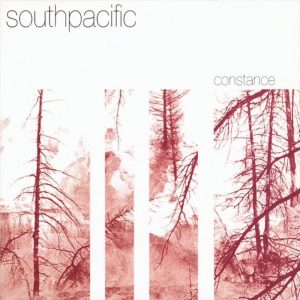 Southpacific
Southpacific
Constance
Trendy typography notwithstanding, the name Southpacific makes you think of lushly warm, tropically earthy musical delights, doesn’t it? Well, as Alanis would say, isn’t it ironic? This trio of Ottawa-born, Toronto-based shoegazers practise a style of somnambulant space-rock that’s anything but steamy and cozy — although it certainly does qualify as lush. Like kindred spirits SIANspheric and labelmates Bailter Space, southpacific don’t so much play songs as set off on instrumental, interplanetary flights of fancy, dreamily gliding along on glistening solar-flare guitars and waves of radiating feedback, all elegantly powered by the gentle thrust of sombre progressions and languid backbeats. Take your protein pill and put your helmet on …
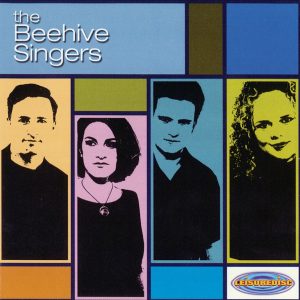 The Beehive Singers
The Beehive Singers
The Beehive Singers
Imagine The Fifth Dimension in the Cocktail Revolution. Or maybe The Nylons on nitrous. Toronto vocal quartet The Beehive Singers pour some wild honey in your ear on this debut disc featuring 40 minutes of luscious sweet four-part harmony delivered with just the right mix of sincerity and kitsch. Executive produced by lounge legend Jaymz Bee and backed by a swank and swinging lounge-jazz combo, these voices of the Beehive flit back and forth between classic sophisticate croonfests (Burt Bacharach’s Wishin’ & Hopin’, Johnny Mercer’s Clear Out This World) and oddball selections (John Southworth’s Girl on the Moon, Donald Fagen’s Maxine and a version of Neil Young’s Only Love Can Break Your Heart unlike any you’ve heard before), taking you up, up and away in their beautiful, silly balloon. Sweeeeeet.
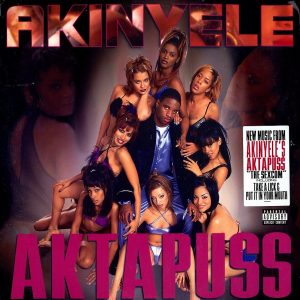 Akinyele
Akinyele
Aktapuss
If there ever was a CD that warranted one of those Parental Advisory stickers, this sex-obsessed rap raunchfest is it. In fact, one of those little black-and-white bar numbers isn’t enough — only a full-cover, full-colour warning label could come close to conveying just how wondrously filthy Akinyele’s Aktapuss truly is. Our man Ak has obviously studied at the feet of the masters, from old-school comic Redd Foxx to X-rated ’80s rapper Blowfly, and on this sophomore disc, he picks up where they left off, spitting hilariously priapic rhymes that would make Richard Pryor blush like a church lady — all set upon a bed of bump-and-grind hip-hop grooves. I’d like to tell you more, but I can’t print most of the song titles in a family newspaper. What I can tell you is that Aktapuss is supposedly the soundtrack to Ak’s new movie. I’m guessing it won’t be a Disney flick.
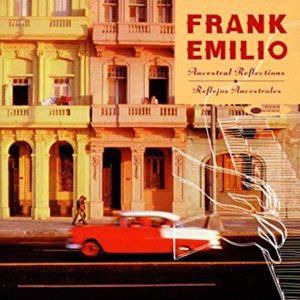 Frank Emilio
Frank Emilio
Ancestral Reflections
Like any trend, there are pros and cons to North America’s fascination with all things Latino. Frank Emilio is one for the plus column. This blind, gnomish Cuban piano legend has been plying his trade for 50 years (most recently behind Canuck woodwind player Jane Bunnett). On the solo CD Ancestral Reflections, he puts that half-century of experience to work, offering up nine sizzling, hip-swivelling slices of rumba, mambo, conga and Afro-Cuban jazz with the aid of a crack Havana band so seductively smooth you’ll be grooving to the guiro solo. But the real star in this heavenly constellation is Emilio, who playfully saunters and swings with the blocky chording and punctuation of a Cuban George Shearing. Do yourself a favour: Put down that Enrique Iglesias CD and treat yourself to a real Latin swinger.
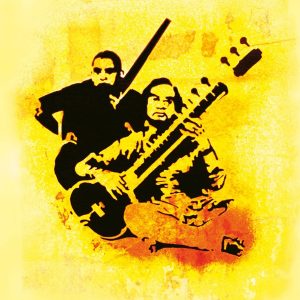 Ananda Shankar Experience & State of Bengal
Ananda Shankar Experience & State of Bengal
Walking On
Indian sitarist Ananda Shankar comes by the Experience tag honestly — back in the ’60s, this nephew of Ravi jammed with Jimi Hendrix and recorded cover versions of Jumpin’ Jack Flash and Light My Fire. Three decades later, his flirtation with Western sounds continues with Walking On, a collaboration with British hip-hopper and electronica artist State of Bengal, aka Sam Zaman. The pair create the perfect musical mixed marriage — the bendy twang of Shankar’s ancient sitar flows effortlessly along inside Zaman’s tabla-tronic grooves and electro-ethno rock rhythms, producing a hybrid sound guaranteed to please fans of culture-clash combos like Asian Dub Foundation. Sadly, Shankar has since walked on to that big jam session with Jimi in the sky, but this disc is a fine way to cap his legacy.
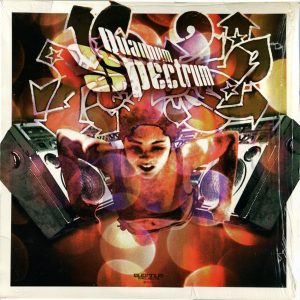 Quannum Spectrum
Quannum Spectrum
Various Artists
Think of the Bay Area Quannum musical collective as the shadow cabinet — as in DJ Shadow. Rappers and hip-hoppers Lyrics Born, Lateef the Truth Speaker, Chief Xcel and Gift of Gab have been quiet collaborators on many of Shadow’s recordings for years, when they aren’t issuing their own albums in various combinations (Lyrics and Lateef team up as Latyrx, while Xcel and Gab go by Blackalicious). This collection serves as the ultimate sample platter. And quite a meal it is — heaping helpings of spectacular vernacular, sci-fi sensibility and verbal pyrotechnics set atop tracks of P-Funkadelicious, grits ’n’ gravy grooves or Shadow’s late-night, record-geek constructs. Never mind the Quannum Spectrum — this compilation covers the spectrum of hip-hop, period.
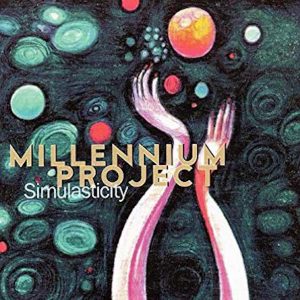 Millennium Project
Millennium Project
Simulasticity
With a name like Millennium Project, you know you’re in for some futuristic, high-tech, forward-thinking sonic experimentation, right? Wrong. This Vancouver sextet is less interested in futurism than fusion — specifically, grafting together the organ-fuelled, jazzy groove of Medeski, Martin and Wood with the thumpy, syncopated funk of James Brown and the punchy horns of the Tower of Power. All of which is well and good — except that it’s all pretty much been done before by bands like Defunkt. Sure, the occasional tabla track and experimental, dubby flourish from producer Bill Laswell give Simulasticity some elasticity. Ultimately, though, it’s clear this project is more about the last millennium than this one.
 Amen
Amen
Sunglow
OK, Swedish trip-hoppers Baxter aren’t exactly Chemical Brothers. And Carl-Michael Herlofsson isn’t exactly as well known as, say, Trent Reznor. But anyone who dug the enticing tones of Baxter’s self-titled 1998 debut — like, perhaps, Madonna, who released the disc on her Maverick imprint — may want to dig up these tracks from Herlofsson’s previous outfit. Interestingly enough, Amen sounds less like Baxter and more like the two electronica bigwigs I named above. These 11 tracks, taken from the band’s two Swedish-only releases, wed the big, block-rocking pop grooves of the Chems to Reznor’s spooky-synth paranoia and crunch-rock guitars. It wasn’t enough to make them a household word, but Amen is still a name worth knowing.
















